- Home
- Colleen Gleason
The Carnelian Crow: A Stoker & Holmes Book (Stoker and Holmes 4) Page 12
The Carnelian Crow: A Stoker & Holmes Book (Stoker and Holmes 4) Read online
Page 12
“Mr. Oligary,” I said frostily, “I am not a delicate flower about to expire simply because you mention a wire searing against someone’s skin, or poking into their arm.” (If he only knew.)
“Yes, yes, of course you aren’t.” He smiled, but ruefully. “I just— It’s unseemly to talk about such ugly things.”
By now, I could see the preparations being made for the ceremony to begin: several people were moving around purposefully and the crowd had become quieter. But I couldn’t, for the life of me, see what was going to be lit. There was nothing but an empty space in the center of the gathering.
“How did your brother injure himself?” I asked in a low voice.
“Apparently, during his efforts to free his friend, Emmett stepped on a loose wire. The electrical power was so strong, the wire zapped him along the foot and up into the leg. By the time he was able to extricate himself, Hiram was gone. And Emmett’s leg was…well, it’ll never be the same.”
“How terrible,” I said. After all, I had seen poor Mayellen Hodgeworth electrofied by the Ankh. I knew very well what it looked like when someone was flopping around, thudding helplessly as the pain of hot electricity seared through them—
“Miss Stoker, I do apologize. I should never have been so blunt. I could have kept some of the more sordid details to myself.”
“Not at all. I’m certain you could have been more detailed if you’d tried.”
Now what? I obviously needed to ask more questions. If this had become a case investigated by Scotland Yard, there must have been some indication it was more than an accident. “So it was a horrible accident with electrical wires. How did Mr. Bartholomew get himself—well, falling against the machine?”
Mr. Oligary drew himself up. “Oh, it was no accident.”
“Truly? Why do they think that?” I asked, uncaring who “they” were in this situation. I had finished the last bit of my hot chocolate, and Greer appeared at my elbow to take the empty cup.
“Excuse me for being blunt, Miss Stoker, but Hiram is no fool, and he would never have gotten so close to that open-wired machine so carelessly. There was nothing for him to have tripped over—and he’d fallen backwards against it, which would have been an odd place for him to be standing in the first place. And even if he had fallen accidentally, why was the machine turned on and the bare wires exposed? No, there was simply no way it could have been an accident. Someone had to have done it—someone pushed him. And we all know it was the man from Boston.”
“Or New York.”
“Or— Right. Yes.”
“The representative from the electricity company killed Mr. Bartholomew—with electricity?” Something didn’t seem quite right about this theory. “With the same sort of machine he was trying to get them to use? Why would he do that?”
“Emmett believes something happened during their meeting that caused the agreement to fall through. And that the American—I don’t recall his name—was angry and decided to take out his anger on Hiram.”
“Why, that’s terrible,” I said. “What happened to the American representative?”
“He disappeared. No one ever saw him after that. That’s why the case was turned over to Scotland Yard. They’ve been looking for him—but he’s probably returned to Boston by now.”
A sudden hush went over the crowd.
“It’s about to begin,” said my companion unnecessarily as he shifted back to looking straight forward. Then he gestured to Greer. “Have the two girls on the back come around so they can see. There is a small bench over there.”
I found it endearing that Mr. Oligary had thought about Pepper and Hillie. Another man might have ignored the two maids and left them to their own devices—or even stuck in a position where they couldn’t see.
Everything became quiet and still, the crowd hushing with anticipation. The night was moonless, brushed with clouds that obscured any of the stars, and the large circular area in which we gathered was ringed by tall trees. They formed a sort of barrier from the rest of the amusement garden, but someone had begun to extinguish the other lights through which we’d already traveled as well.
It became very dark.
From behind us, I heard the soft sound of a violin as it began to play “Silent Night,” smooth and clear in the darkness. And then, to my astonishment—and that of the rest of the crowd—a golden light began to glow on the ground in the center of the empty circle. Everything remained the same until the song finished.
The world lapsed into expectant silence until the sudden joyous sound of trumpets announced “Joy to the World.”
At that, the golden light began to spread across the ground. It radiated from the center of the space like dozens of wheel spokes shooting out toward the crowd—and beneath their feet. People exclaimed and jumped back or to the side as streaks of light shot through the snow under them. The effect was stunning: the entire circular area was now glowing from the ground up. The snow was gilded like a heavenly cloud.
“There’s more,” Mr. Oligary murmured near my ear.
And he was correct. As “Joy to the World” ended, the musicians (hidden somewhere behind us) began to play “O Christmas Tree”…
And that was when the center of the area began to rise.
More gasps and exclamations filled the air as the golden glow slowly spiraled up and out from the ground, the funnel shape growing wider at the base as it rose. It was a tree—a pine tree—massive in girth and completely covered with sparkling lights of gold, silver, bronze, and copper. It shuddered slightly as it grew taller, higher and higher, broader than any tree I’d ever noticed.
And it moved: ornaments made from tiny cogs and clockworkings buzzed and spun and clicked, blinked and flashed and bounced, swayed and shivered, and fluttered.
The sight was incredible to behold: this living, moving creation of light and machinery that expanded to a height of three stories above us. By now, the crowd had gone utterly silent, awestruck and filled with wonder…and then as we watched further, hand-sized mechanical angels appeared, flying out from the depths of the tree carrying glittery fabric buntings of gold and copper that were draped around the statuesque display.
Somehow, the angels wrapped the shimmery garland along the branches, then settled themselves, each in their own perch on a bough still holding their section of the bunting.
I realized I’d ceased to breathe, and at last remembered to exhale.
“There’s more,” my companion whispered again.
There was more—more lights blinking on around us on countless smaller trees, all decorated with the same wild, mechanized, moving parts—but my favorite part was and would remain the massive Christmas tree and its dancing, moving, glittering parts.
“That was incredible,” I said when everything was finished. “I’ve never seen anything like it.”
“I’m so glad you enjoyed it,” Mr. Oligary said. “Now, Greer will drive us around through the rest of the amusement gardens—and if you like, we can sample some of the vanilla biscuits and cinnamon popcorn balls at one of the refreshment carts.”
Of course, I had no argument with this suggestion, and settled back contentedly in my seat as Greer navigated the sleigh along a pathway decorated in blue and purple lights.
“That’s it! Smith!” exclaimed Mr. Oligary suddenly.
“Pardon me?”
“Smith. That was the chap’s name, the representative from America who was meeting with Hiram Bartholomew. Edison Smith. Some relation to that Mr. Edison everyone talks about—his sister’s son, I believe it might have been.”
Smith? Something inside me dropped low and heavy. I tried to dismiss it.
Surely it was a coincidence. Surely it didn’t mean anything. Smith was a ridiculously common name.
But Smith, I’d recently learned, was also Pix’s real last name.
Miss Holmes
~ Wherein a Scotsman is Ahead of the Game ~
“You do realize this is highly illegal, Miss Stoker,�
�� I said in a hushed voice.
We were huddled in the alcove-like doorway of Lady Thistle’s in the dead of night.
My partner in crime held my pocket illuminator angled so I could see the lock on the door—which I was engaged in picking—while at the same time Evaline stood so as to block as much of the light as possible from anyone who might look down this side alley and wonder what was going on here.
The city clocks—Ben and the Oligary Tower—had just bonged out two chimes. I paused in my work to yawn hugely, gusting out a cloud of white air in the frigid night. I’d been rousted from a sound sleep by Evaline almost an hour ago.
“What on earth are you doing here?” I grumbled, once I got over the surprise of being shaken awake. Fortunately for her, I’d assumed it was Mrs. Raskill who invaded my bedchamber, and therefore didn’t shout or strike out at the invasion. “I thought you were at New Vauxhall Gardens for the Lighting Extravaganza and other festivities.”
“I’m not,” she replied. “I got a convenient headache and Mr. Oligary brought me home early. Mina, we have to find Pix—if he’s still alive.”
The urgency in her voice washed away the dregs of my slumber. “Did something happen to make you come all the way over here to wake me up in the middle of the night?”
“Mmm…maybe,” she prevaricated.
“And presumably you have a plan?”
“I don’t have a plan. That’s your job. But I’ve got the muscle. Let’s see if we can find The Carnelian Crow behind Lady Thistle’s. Maybe Pix will be there. I need to talk to him.”
I’ll admit, it didn’t take much effort for her to convince me to climb out of bed, though I did regret it the moment I flung back my warm blankets and set foot on the cold floor.
Now, thirty minutes later, we were engaged in illicit activity in a side alley in London in the deepest part of the night. As it had been nearly two months since our last adventure, I found myself exhilarated to be back on the job.
“Hold it steady,” I reminded her as I crouched next to the door. (Since I was wearing a flexible style of corset, lower-heeled shoes, and a split skirt, I was able to hold this posture with relative ease, considering.) “I can’t see what I’m doing and my fingers are cold and numb.”
“I’m trying to block the light and keep an eye out for anyone coming,” Evaline retorted. “And I’m freezing, so if you’d hurry things up a bit, I’d be very appreciative.”
“Shhh. I need to be able to… Ah. Here we go. And…there.” The lock snicked open. I shoved my pick (given to me by Uncle Sherlock on my eighth birthday, along with a jumble of practice locks) into its sheath in my leather toolkit and pulled to my feet with a small groan.
“Ready?” I said.
“I’ll go first.” Evaline handed me the small pocket illuminator and pushed through the door. “No vampires around, but there could be other threats.”
I opened my mouth to argue, but she’d already disappeared into the darkness. Once inside, I turned the Flip-Illuminator back on and cupped it with my hand.
Evaline had moved swiftly and unerringly to the rear of the shop, leaving me to wonder whether the ability to see in the dark was yet another of her skills.
“Mina!” she hissed. “Oh blooming Pete! Oh…Grayling’s going to have something to say about this.”
My heart sank a little as I hurried toward the rear of the shop, for I had a strong suspicion I knew exactly what she meant. “What is it?” I asked.
I was moving so quickly I bumped into one of the freestanding hat displays—which I was certain hadn’t been there the other day—and nearly sent it and its contents tumbling to the floor.
“What are you doing? Hurry up!” Evaline called back.
“Who is it?” I asked with grim acceptance as I attempted to disentangle myself from a trailing hat ribbon and the levers of the display—all of which seemed to be particularly adept at finding nooks and crannies on my attire and satchel to which they could hook and cling.
“How did you kno—oh, never mind. It’s Lady Thistle, Mina. She’s dead.”
My heart sank even lower and I broke free from the mechanical claws of the hat rack. Drat it. Oh, drat it.
The scene was much of what I’d anticipated from the moment Evaline had first reacted: the small, crumpled, birdlike body of the shopkeeper lay still and cold on the floor next to her blue velvet perch. She looked hardly more than the size of a child, or a bag of slender, delicate bones. Her hearing apparatus was a crunched jumble of metal on the ground.
“Shine the light here,” I whispered as I crouched (again, with less difficulty than usual due to my criminally appropriate clothing) next to Lady Thistle. She lay on her side, nearly facedown on the floor in a small heap. My eyes were damp and stinging as I touched the soft, bony hand flung out from her on the ground. “Stiff and cold,” I murmured. “I need better light—”
“We’ve got to report it,” said my companion, standing so close that her boots threatened to clutter the crime scene.
I knew the only reason she was so close was because there wasn’t any evidence of blood so far; Evaline cannot stomach the gore associated with death and violence. It was a good thing vampires, when she staked them, simply poofed into dust instead of collapsed into piles of blood and guts.
And of course it was a crime scene. I didn’t believe for a moment that Lady Thistle had just keeled over—and conveniently the day after I discovered the secret door in the closet.
“Right. There probably isn’t a telephone in here; you’ll have to go—”
A sound from the front of the shop, along with a swish of the door opening and a larger spill of light, had us both looking that way.
“What’s going on in here?” asked a man, whose silhouette clearly showed the bobby hat worn by the Metropolitan Police. A second man was right behind him. Both held night sticks, and one carried a large lantern.
Evaline, who actually appeared to be thinking quickly for once—instead of acting without thinking—rushed forward to meet them. I heard her put on a quavery, shocked female act as she explained that we’d just happened to walk by and saw the door slightly ajar, and thought we’d best check and make sure nothing had happened, for we were both regular patrons of this site and knew Lady Thistle, and—
“Send word to Grayling,” interrupted the bobby, speaking to his partner, and clearly not falling for Evaline’s somber, if convoluted, tale. “He was expecting something like this to happen and wanted to be notified immediately—anytime, night or day.”
Oh he was, was he?
Infuriating man.
The second policeman went off on his task, and despite my irritation at being anticipated by the too-smart-for-his-own-good Scotland Yard detective, I continued with my examination of poor Lady Thistle. I wanted to get as much data as I could before the bobbies came traipsing back here, contaminating the scene.
“Excuse me, miss, but you’re going to have to let us see to it,” said the policeman who’d remained. He was standing so that he cast an obliterating shadow over my work and didn’t have the decency to shine his lantern over it to help.
“Evaline, would you please turn on a lamp?” I said, choosing, at the moment, to ignore the buffoon who would certainly make my investigation more difficult given the chance. Which I had no intention of giving. “There’s no reason to be in the dark any longer.”
“Miss,” said the buffoon again. His lantern, still in probably the most unhelpful position possible, swung gently in his grip.
“Please step back,” I said rather sharply as I made a matching gesture. “If you don’t remove your feet from the vicinity, you’re going to destroy any hope of clues. But you could shine that dratted lantern over here.”
“Look, miss,” he said, “it’s not your place to be— It’s not right for a lady to— Miss, please. This is a…a dead body. It could even be a break-in.”
My advantage in this instance was the fact that he wouldn’t dare put his hands on a lady in order
to physically move her, though he was beginning to fray my nerves. I hadn’t yet been able to turn Lady Thistle onto her back or establish a cause of death, and he was certainly not helping.
“Oh, Evaline, darling, please don’t cry,” I said earnestly. “I know it’s terribly upsetting, finding her like this.”
My colleague is nothing if not dramatic. She caught on immediately and began to sob loudly in a manner that was so obviously fake that I was astonished the policeman fell for it.
But then again, this was the same policeman possessing such a lack of common sense that he trod all over the scene of the crime and didn’t bother to even try to illuminate it.
Evaline helped matters along by practically throwing herself into the man’s arms, wailing with wild, racking sobs and raving on nonsensically. She even knocked his bobby hat askew. I might have felt sorry for him if he hadn’t been so easily duped. I managed to reach up and snatch the lantern from his hand—since Evaline was otherwise occupied and hadn’t found the lamp—and at last I got a good look at the body.
Though I didn’t turn Lady Thistle over immediately, I could see there was no blood. It would have pooled beneath her onto the floor if she’d been cut or shot. If she’d been struck with some blunt instrument, there would be signs of blood and matted hair on the back or side of her head—none of which I observed.
That left asphyxiation, poison, or some sort of accidental or natural death, and though she could be considered elderly, I immediately dismissed the last possibility as being far too coincidental.
As I went about my examination, I managed to block out the sounds of my colleague carrying on, noting with approval that she’d managed to maneuver the bobby away from the area. I’d just finished a close study of Lady Thistle’s fragile hands when a pair of boots appeared in my periphery.
I recognized them from the teeth marks and the frayed shoelace. I didn’t bother to look up.
“Asphyxiation,” I said, “by strangulation.”

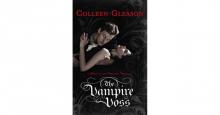 The Vampire Voss
The Vampire Voss Lavender Vows
Lavender Vows Sanctuary of Roses
Sanctuary of Roses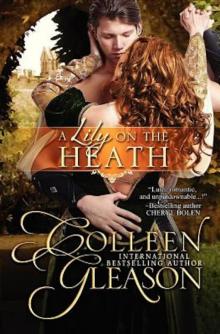 A Lily on the Heath
A Lily on the Heath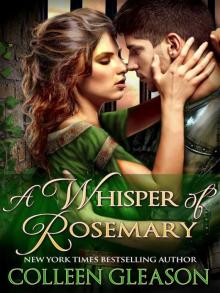 A Whisper Of Rosemary
A Whisper Of Rosemary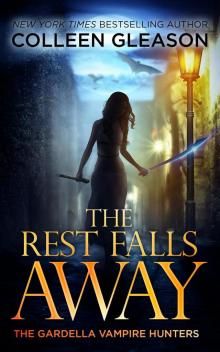 The Rest Falls Away
The Rest Falls Away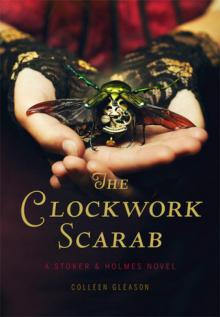 The Clockwork Scarab
The Clockwork Scarab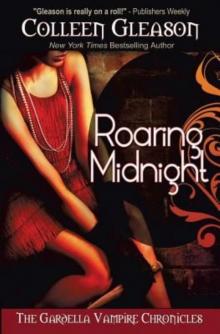 Roaring Midnight
Roaring Midnight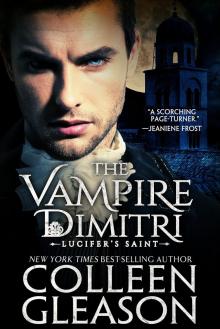 The Vampire Dimitri
The Vampire Dimitri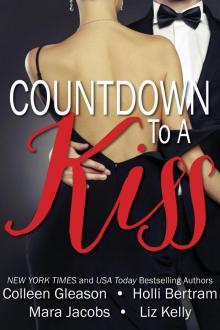 Countdown To A Kiss A New Years Eve Anthology
Countdown To A Kiss A New Years Eve Anthology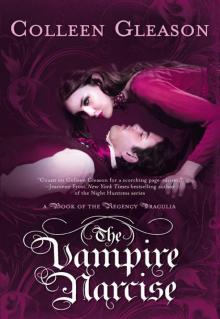 The Vampire Narcise
The Vampire Narcise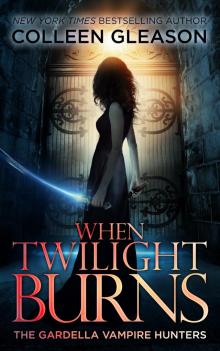 When Twilight Burns
When Twilight Burns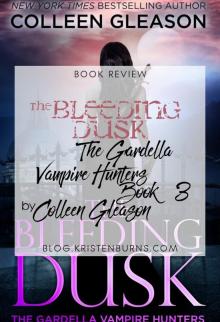 The Bleeding Dusk
The Bleeding Dusk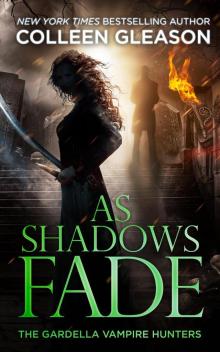 As Shadows Fade
As Shadows Fade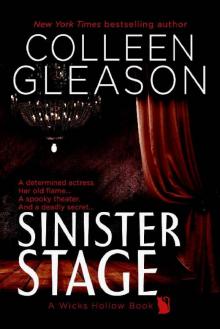 Sinister Stage: A Ghost Story Romance and Mystery (Wicks Hollow Book 5)
Sinister Stage: A Ghost Story Romance and Mystery (Wicks Hollow Book 5)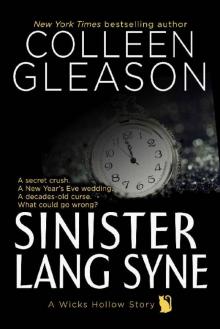 Sinister Lang Syne: A Short Holiday Novel (Wicks Hollow)
Sinister Lang Syne: A Short Holiday Novel (Wicks Hollow)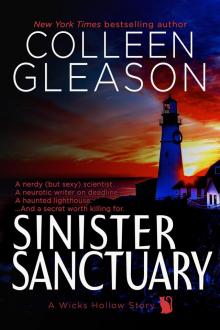 Sinister Sanctuary
Sinister Sanctuary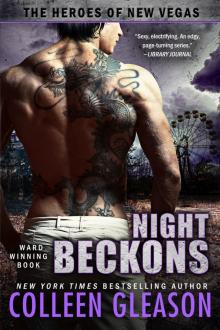 Night Beckons
Night Beckons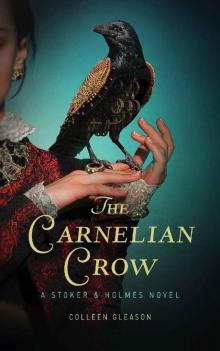 The Carnelian Crow: A Stoker & Holmes Book (Stoker and Holmes 4)
The Carnelian Crow: A Stoker & Holmes Book (Stoker and Holmes 4)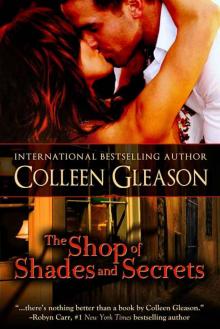 The Shop of Shades and Secrets (Modern Gothic Romance 1)
The Shop of Shades and Secrets (Modern Gothic Romance 1) Lavender Vows tmhg-1
Lavender Vows tmhg-1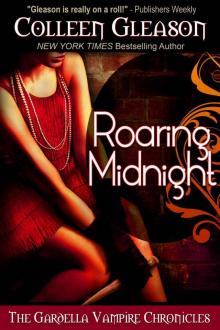 Roaring Midnight (The Gardella Vampire Chronicles | Macey #1)
Roaring Midnight (The Gardella Vampire Chronicles | Macey #1) Lavender Vows (The Medieval Herb Garden Series)
Lavender Vows (The Medieval Herb Garden Series) Dark Secrets: A Paranormal Romance Anthology
Dark Secrets: A Paranormal Romance Anthology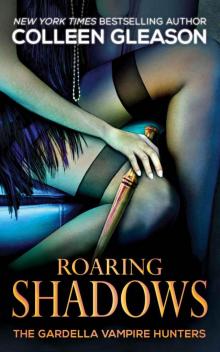 Roaring Shadows
Roaring Shadows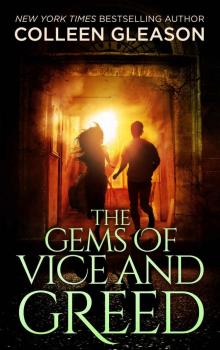 The Gems of Vice and Greed (Contemporary Gothic Romance Book 3)
The Gems of Vice and Greed (Contemporary Gothic Romance Book 3)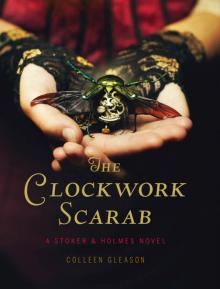 The Clockwork Scarab s&h-1
The Clockwork Scarab s&h-1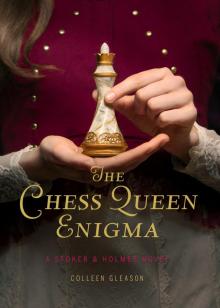 The Chess Queen Enigma
The Chess Queen Enigma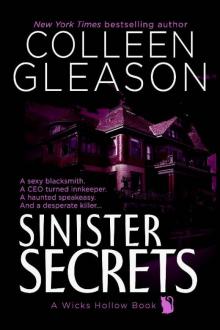 Sinister Secrets
Sinister Secrets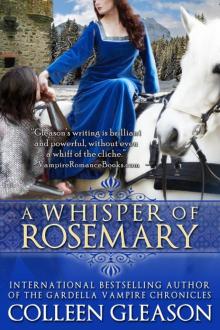 A Whisper of Rosemary (The Medieval Herb Garden Series)
A Whisper of Rosemary (The Medieval Herb Garden Series) Dark and Damaged: Eight Tortured Heroes of Paranormal Romance: Paranormal Romance Boxed Set
Dark and Damaged: Eight Tortured Heroes of Paranormal Romance: Paranormal Romance Boxed Set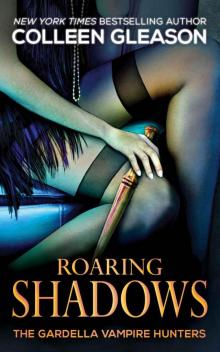 Roaring Shadows: Macey Book 2 (The Gardella Vampire Hunters 8)
Roaring Shadows: Macey Book 2 (The Gardella Vampire Hunters 8)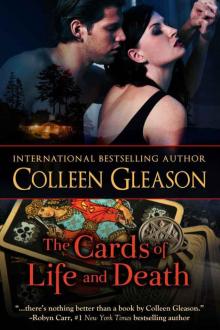 The Cards of Life and Death (Modern Gothic Romance 2)
The Cards of Life and Death (Modern Gothic Romance 2)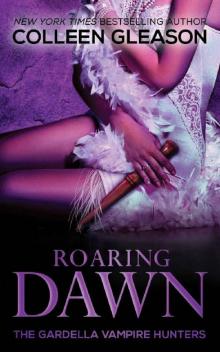 Roaring Dawn: Macey Book 3 (The Gardella Vampire Hunters 10)
Roaring Dawn: Macey Book 3 (The Gardella Vampire Hunters 10)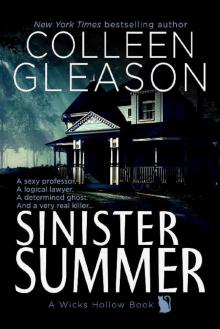 Sinister Summer
Sinister Summer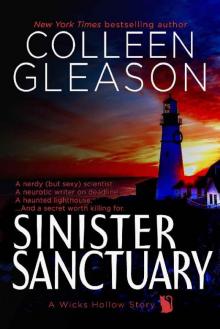 Sinister Sanctuary: A Ghost Story Romance & Mystery (Wicks Hollow Book 4)
Sinister Sanctuary: A Ghost Story Romance & Mystery (Wicks Hollow Book 4)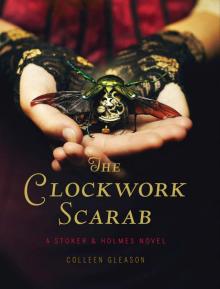 The Clockwork Scarab: A Stoker & Holmes Novel
The Clockwork Scarab: A Stoker & Holmes Novel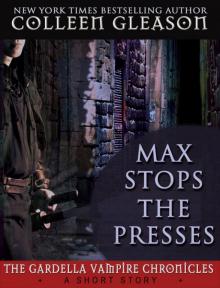 Max Stops the Presses
Max Stops the Presses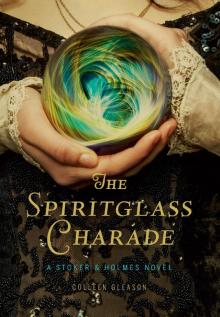 The Spiritglass Charade
The Spiritglass Charade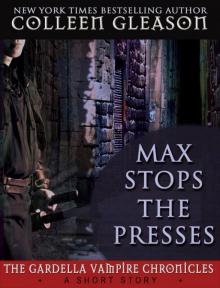 Max Stops the Presses: A Gardella Vampire Chronicles Short Story
Max Stops the Presses: A Gardella Vampire Chronicles Short Story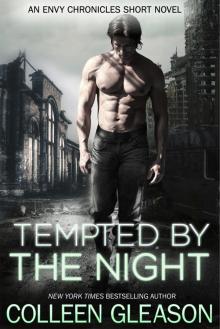 Tempted by the Night
Tempted by the Night